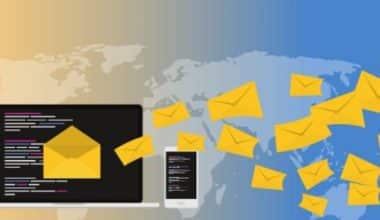You may learn the fundamentals, improve your money management skills, and even find ways to achieve your long-term financial objectives with the aid of personal finance tools and apps. Your existing financial requirements will determine the finest personal finance software for you. You can master budgeting and cost tracking with the aid of some personal finance tools while managing your investment portfolio can be facilitated by other programs. Of course, your personal finance software budget is also important. We looked into several well-known online personal financial software for Mac options before creating our review list. We looked at aspects including cost, feature diversity, the kinds of financial goals they help you achieve, and corporate reputation. Both free and paid choices are included in our list of the top Mac online personal financial software reviews to accommodate different financial objectives.
What is Personal Financial Software?
Any program that assists you with all facets of your finances is considered personal financial software. For various purposes, you can select different software. The software can be useful for a variety of tasks, including budgeting, investing, managing debt, and setting savings objectives. It helps you set up procedures that work for you and is intended to make managing and tracking your finances easier and more effective.
How Does Personal Financial Software Work?
The standard process for how personal financial software functions is to gather your personal information, connect it to your financial institution, investment accounts, and credit cards, and then assist you in creating your financial goals. Once your accounts are linked, it can monitor your credit, track your spending and saving patterns, assist you in developing a budget, provide recommendations and investment guidance, and remind you to pay your bills and make savings goals.
Best Personal Financial Software
The best personal financial software review enables managing your accounts, from receipts and payments to income and results, straightforward. By essentially eschewing conventional receipts and spreadsheets, it streamlines the process of managing personal finances. The best personal financial software also enables you to gather your documents, save them all in one location, and back them up, frequently using cloud storage for more flexibility.
Basic financial planning software merely offers a simple interface for monitoring your funds, while more sophisticated programs can assist with debt repayment, budget management, or even offer financial counseling as an extra service.
To help you decide which would be best for you, we’ll look at the top review of personal finance software available online and show you each program’s notable features. Here then are the best online personal financial software platforms currently available and, underneath those, the best free personal finance software.
#1. Quicken
Quicken is a feature-rich program that provides a comprehensive approach to financial management at a reasonable price. One of the oldest and most well-known personal financial software packages available is Quicken. The software enables you to manage different facets of your financial life, including budget planning, debt monitoring, savings objectives, and even investment counseling. Additionally, it offers Excel exporting, which enables you to edit and refine your data and run extra computations on it.
#2. Mint
Our top recommendation for budgeting is Mint since you can effortlessly link your accounts, create a budget, and track your spending for nothing. One of the most widely used programs for tracking expenses and creating budgets is Mint. To examine your expenditure and identify areas where you may make savings to improve your finances, you can have the software import data from your bank and credit cards.
#3. YNAB
You Need a Budget, also known as YNAB, provides tools and training that will assist you in developing better financial and budgeting habits.
YNAB is personal finance software created to assist you in managing your monthly budget while enhancing your financial literacy. The software gives you tutorials that will assist you in tackling some of the most challenging financial problems as you establish your budget and manage your daily finances. YNAB can assist you in kicking negative money habits by teaching you a few fundamental financial management principles.
#4. TurboTax
Nobody like preparing their taxes, but TurboTax’s useful software makes the job easier. Although you may not always use TurboTax to manage your finances throughout the year, the program might be useful when tax season rolls around.
Although it is one of the more expensive tax preparation programs, it is also user-friendly and guides you through your taxes to assist you in correctly filing your return. Simply import your W-2 information from your employer or take a picture of it, and the software will transfer the information into the form, making it easy to enter your tax information.
#5. FutureAdvisor
Consider FutureAdvisor if you value the option of receiving investment advice yet handle your portfolio autonomously.
FutureAdvisor might be an excellent choice if you’re a DIY investor searching for affordable access to a financial counselor. To assist you in diversifying your portfolio, the investment software makes individualized recommendations that you can choose to adopt or ignore. If you have investable assets worth at least $5,000, you are qualified to sign up for the software.
#6. Empower (Formerly Personal Capital)
Empower (Formerly Personal Capital) provides budgeting and investing tools to assist you in maintaining control over your ongoing expenses and long-term financial goals.
You can manage all of your financial accounts on Empower (Formerly Personal Capital) lone platform. To have your entire financial picture in front of you, you can include your bank accounts, mortgage, other credit accounts, investment accounts, and more. Empower can prevent you from having to switch between tabs to see where you stand if you have many accounts.
#7. Tiller Money
Tiller may be the money management tool you’ve been looking for if you’re a visual person who values a well-designed spreadsheet and wants to keep track of all your accounts in one location. Also, Tiller Money updates the data from your checking, credit card, loan, investment, and other accounts into a customizable Google Sheet or Excel template, allowing you to see all of your money in one spot.
You can choose from templates that automatically organize your data or design a spreadsheet that is tailored to your needs. Additionally, it will regularly give you a summary of your most recent transactions and account balances.
Personal Financial Software Mac
You can download everything you need to make your Mac into an all-purpose hub for managing finances for your home or business right now. Check through the top Mac personal financial software available online to determine which one has the features you require. There are numerous other apps that you can utilize for a variety of purposes. Here are some of the best financial software apps you can get for your Mac.
#1. QuickBooks
Although Quicken for Mac receives a lot of attention, Quicken is not a good choice if you don’t use Windows: Support has decreased over the past few years, and the incompatibility isn’t worth it.
However, QuickBooks is still a powerful and fully supported Mac financial program. On an OS X platform, this program is the one to use for managing a small business. With its comprehensive invoice, transaction, workflow, and reconciliation features, QuickBooks continues to be the best financial software available if your business employs Mac computers.
#2. iBank 5
The most recent version of iBank provides a comprehensive set of financial management tools at a very high level. You can link directly to bank accounts via Direct Access and Direct Downloads, and you can easily import from Quicken to update all of your data.
The features include budgeting, tracking investments, and bill notice in advance. If you wish to examine a specific area of your money, you may also create your financial charts and reports.
#3. iFinance
Take a look at iFinance, which concentrates more on the fundamentals of money management, if iBank sounds too comprehensive or pricey for your Mac personal financial software requirements. You can design budgets that are as simple or sophisticated as you choose by importing a variety of financial records. If you have the time to devote to learning the occasionally unusual accounting tools, iFinance offers the thorough transaction management that cautious families and small enterprises alike can value.
#4. MoneyWell
If the iBank UI isn’t very helpful to you, check out the MoneyWell financial program. Many of the same capabilities are available in MoneyWell, including budgeting, transaction management, and direct bank connections, but with a very different set of images and tools that you might find more appealing.
If you feel like working on your finances while lounging on the couch, MoneyWell also offers complete support for iPad. You will enjoy its “spending buckets” that help you set spending limits in particular categories if you enjoy envelope budgeting.
#5. Fortora Fresh
Compared to older competitors, Fortora is a newer player in the personal finance software market. It specializes in simpler features that let you rapidly search for particular transactions, bulk-edit entire fields to save time, and use shortcuts when creating budgets and adding things.
It may import stock quotes for your investments in addition to bank account information. Otherwise, despite its regrettable lack of support for mobile devices like the iPad, it makes a formidable rival to services like iBank and MoneyWell.
#6. SplashMoney
A more economical personal financial tool for setting up budgets and keeping track of purchases is SplashMoney. It has the same ability as its more expensive Mac personal finance software cousins to connect to major banks and automatically upload transactions and account information.
There are tools for comparing actual spending to budgeted spending and for adjusting budgets according to your priorities. This software is available in desktop and mobile versions; choose the desktop version for its robust feature set.
What to Look for in a Personal Finance Software
When selecting a personal finance tool, take into account your objectives, the functions your software must perform, and how sophisticated you would like it to be. Look for a budgeting application that syncs with your bank and credit card accounts if you desire an app that tracks your spending and income, for instance.
Other things to think about as you compare prices include:
- Price: Many personal finance programs have a free version and a premium version with additional features available for a monthly, yearly, or one-time price. If your financial position is complicated—you own a small business, for instance—or if you desire the extra features’ peace of mind, you might wish to upgrade.
- Account restrictions: Some software only allows you to add a certain number of accounts or only allows you to add accounts of one type. Therefore, if you need to keep an eye on your bank, credit card, and investment accounts, search for a provider that can manage them all.
- Spending reports: Do you learn best visually? Choose a tool that organizes your expenditures using charts and graphs (by category or quantity). Extra points if you can alter the reports to suit your monetary objectives.
- Human support: Human assistance is sometimes more necessary than a typical user manual or FAQ section. Look for tools and apps that give extra assistance, such as those that enable you to speak to a live person or provide a robo-advisor.
- Free credit score: Some resources assist you in keeping track of your credit score with weekly and monthly score updates as well as simulators that illustrate the potential effects of different financial decisions on your credit.
What software do accountants use for their personal finances?
Comparison table for the best personal accounting software:
- QuickBooks
- TurboTax
- Mint
- Tiller
What are the functions of personal finance software?
No late payments, quick and simple account reconciliation, simple budgeting, simple tax time, online bill payment, tracking and analyzing investments, quick expense comparison, avoiding financial mistakes, keeping an eye on credit scores, and setting and managing financial goals are just a few of the advantages offered by personal finance software.
What software do most banks use?
The best financial software programs typically use NET, Python, Ruby, and Java. Additionally, there are particular technologies for core banking development, such as Temenos, Finastra, and Oracle FLEXCUBE.
What software do finance people use?
- Mint
- Xero
- Quicken
- QuickBooks
- YNAB
- Personal Capital
- Oracle NetSuite
- Sage Intacct
- GnuCash
How do I track my personal finance?
Here’s how to begin keeping tabs on your monthly spending:
- Examine the account statements.
- Classify your expenditures.
- Create a budget.
- The 50/30/20 budget calculator.
- Budgeting or expense-tracking apps.
- Investigate different expense-tracking tools.
- Find areas that need improvement.
What are the 7 steps in personal finance?
Important Steps in Financial Planning:
- Set both short-term and long-term goals.
- Examine your present income, savings, and long-term investment strategy.
- Adjust goals and address shortcomings.
- Consider several potential future developments.
- Create a thorough financial plan.
- Execute and keep an eye on that plan.
Conclusion
Because of Quicken’s many advantages, we decided that it was the best personal finance program overall. It assists with budget creation, keeps tabs on debt and expenditures, and lets you export data to Microsoft Excel. Additionally, you can set up bill payments through the software, which is compatible with Android, iOS, MacOS, and Windows operating systems.
You can’t go wrong with Mint for budgeting especially, and we recommend TurboTax for tax preparation. Empower is an excellent option for individuals looking for software that also aids with investments.
- The Best Payment Apps Of 2023
- BEST JOB SEARCH ENGINES: 15+ Best Websites
- The Best Tech Companies In Nigeria
- 5 Common Video Embedding Mistakes and How to Avoid Them
- Best Business Ideas to Make Money






